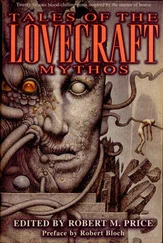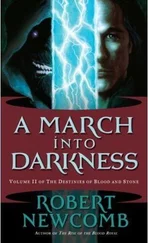Robert Pirsig - Lila. An Inquiry Into Morals
Здесь есть возможность читать онлайн «Robert Pirsig - Lila. An Inquiry Into Morals» весь текст электронной книги совершенно бесплатно (целиком полную версию без сокращений). В некоторых случаях можно слушать аудио, скачать через торрент в формате fb2 и присутствует краткое содержание. Жанр: Современная проза, на английском языке. Описание произведения, (предисловие) а так же отзывы посетителей доступны на портале библиотеки ЛибКат.
- Название:Lila. An Inquiry Into Morals
- Автор:
- Жанр:
- Год:неизвестен
- ISBN:нет данных
- Рейтинг книги:3 / 5. Голосов: 1
-
Избранное:Добавить в избранное
- Отзывы:
-
Ваша оценка:
- 60
- 1
- 2
- 3
- 4
- 5
Lila. An Inquiry Into Morals: краткое содержание, описание и аннотация
Предлагаем к чтению аннотацию, описание, краткое содержание или предисловие (зависит от того, что написал сам автор книги «Lila. An Inquiry Into Morals»). Если вы не нашли необходимую информацию о книге — напишите в комментариях, мы постараемся отыскать её.
Lila. An Inquiry Into Morals — читать онлайн бесплатно полную книгу (весь текст) целиком
Ниже представлен текст книги, разбитый по страницам. Система сохранения места последней прочитанной страницы, позволяет с удобством читать онлайн бесплатно книгу «Lila. An Inquiry Into Morals», без необходимости каждый раз заново искать на чём Вы остановились. Поставьте закладку, и сможете в любой момент перейти на страницу, на которой закончили чтение.
Интервал:
Закладка:
The Victorian social system and the Victorian morality that led into the First World War had portrayed war as an adventurous conflict between noble individuals engaged in the idealistic service of their country: a kind of extended knighthood. Victorians loved exquisitely painted heroic battle scenes in their drawing rooms, with dashing cavalrymen riding toward the enemy with sabers drawn, or a horse returning riderless with the title, Bad News. Death was acknowledged by an occasional soldier in the arms of his comrades looking palely toward heaven.
The First World War wasn’t like that. The Gatling gun removed the nobility, the heroism. The Victorian painters had never shown a battlefield of mud and shell holes and barbed wire and half a million rotting corpses — some staring toward heaven, some staring into the mud, some without faces to stare in any direction. That many had been murdered in one battle alone.
Those who survived suffered a stunnedness, and a lostness and felt bitter toward the society that could do that to them. They joined the faith that intellect must find some way out of old Victorian nobility and virtue into a more sane and intelligent world. In an instant it seemed, the snobbish fashionable Victorian social world was gone.
New technology fueled the change. The population was shifting from agriculture to manufacturing. Electrification was turning night into day and eliminating hundreds of drudgeries. Cars and highways were changing the landscape and the speed with which people did things. Mass journalism had emerged. Radio and radio advertising had arrived. The mastery of all these new changes was no longer dominated by social skills. It required a technologically trained, analytic mind. A horse could be mastered if your resolve was firm, your disposition pleasant and fear absent. The skills required were biological and social. But handling the new technology was something different. Personal biological and social qualities didn’t make any difference to machines.
A whole population, cut loose physically by the new technology from farm to city, from South to North, and from East to West Coast, was also cut adrift morally and psychologically from the static social patterns of the Victorian past. People hardly knew what to do with themselves. Flappers, airplanes, bathing beauty contests, radio, free love, movies, modern art… suddenly the door had been sprung on a Victorian jail of staleness and conformity they had hardly known was there, and the elation at the new technological and social freedom was dizzying. F. Scott Fitzgerald caught the giddy exhilaration of it:
There’d be an orchestra
Bingo! Bango!
Playing for us
To dance the tango,
And people would clap
When we arose,
At her sweet face
And my new clothes.
No one knew what to do about the lostness. The explainers of that period were the most lost of all. Whirl is King, wrote Walter Lippman in his Preface to Morals. Whirl, chaos seemed to be in control of the times. Nobody seemed to know why or where they were going. People raced from one fad to another, from one headline sensation to the next, hoping this was really the answer to their lostness, and finding it was not, flying on. Older Victorians muttered about the degeneracy that was tearing society apart, but nobody young was paying any attention to old Victorians any more.
The times were chaotic, but it was a chaos of social patterns only. To people who were dominated by old social values it seemed as though everything valuable had ended. But it was only social value patterns being destroyed by new intellectual formulations.
The events that excited people in the twenties were events that dramatized the new dominance of intellect over society. In the chaos of social patterns a wild new intellectual experimentation could now take place. Abstract art, discordant music, Freudian psychoanalysis, the Sacco-Vanzetti trial, contempt for alcoholic prohibition. Literature emphasized the struggle of the noble, free-thinking individual against the crushing oppression of evil social conformity. The Victorians were damned for their narrow-mindedness, their social pretentiousness. The test of what was good, of what had Quality, was no longer Does it meet society’s approval? but Does it meet the approval of our intellect?
It was this issue of intellect versus society that made the Scopes trial of 1925 such a journalistic sensation. In that trial a Tennessee schoolteacher, John Scopes, was charged with illegally teaching Darwinian evolution.
There was something not quite right about that trial, something phony. It was presented as a fight for academic freedom, but battles of that sort had been going on for centuries without the kind of attention the Scopes trial got. If Scopes had been tried back in the days when he might have been tortured on the rack for his heresy his stance would have been more heroic. But in 1925 his lawyer, Clarence Darrow, was just taking easy shots at a toothless tiger. Only religious fanatics and ignorant Tennessee hillbillies opposed the teaching of Evolution.
But when that trial is seen as a conflict of social and intellectual values its meaning emerges. Scopes and Darrow were defending academic freedom but, more importantly, they were prosecuting the old static religious patterns of the past. They gave intellectuals a warm feeling of arriving somewhere they had been waiting to arrive for a long time. Church bigots, pillars of society who for centuries had viciously attacked and defamed intellectuals who disagreed with them, were now getting some of it back.
The hurricane of social forces released by the overthrow of society by intellect was most strongly felt in Europe, particularly Germany, where the effects of the First World War were the most devastating. Communism and socialism, programs for intellectual control over society, were confronted by the reactionary forces of fascism, a program for the social control of intellect. Nowhere were the intellectuals more intense in their determination to overthrow the old order. Nowhere did the old order become more intent on finding ways to destroy the excesses of the new intellectualism.
Phædrus thought that no other historical or political analysis explains the enormity of these forces as clearly as does the Metaphysics of Quality. The gigantic power of socialism and fascism, which have overwhelmed this century, is explained by a conflict of levels of evolution. This conflict explains the driving force behind Hitler not as an insane search for power but as an all-consuming glorification of social authority and hatred of intellectualism. His anti-Semitism was fueled by anti-intellectualism. His hatred of communists was fueled by anti-intellectualism. His exaltation of the German volk was fueled by it. His fanatic persecution of any kind of intellectual freedom was driven by it.
In the United States the economic and social upheaval was not so great as in Europe, but Franklin Roosevelt and the New Deal, nevertheless, became the center of a lesser storm between social and intellectual forces. The New Deal was many things, but at the center of it all was the belief that intellectual planning by the Government was necessary for society to regain its health.
The New Deal was described as a program for farmers, laborers and poor people everywhere, but it was also a new deal for the intellectuals of America. Suddenly, for the first time, they were at the center of the planning process — Tugwell, Rosenman, Berle, Moley, Hopkins, Douglas, Morgenthau, Frankfurter — these were people from a class that in the past could normally be hired for little more than laborers' wages. Now intellectuals were in a position to give orders to America’s finest and oldest and wealthiest social groups. That Man, as the old aristocrats sometimes called Roosevelt, was turning the whole United States of America over to foreign radicals, eggheads, Commies and the like. He was a traitor to his class.
Читать дальшеИнтервал:
Закладка:
Похожие книги на «Lila. An Inquiry Into Morals»
Представляем Вашему вниманию похожие книги на «Lila. An Inquiry Into Morals» списком для выбора. Мы отобрали схожую по названию и смыслу литературу в надежде предоставить читателям больше вариантов отыскать новые, интересные, ещё непрочитанные произведения.
Обсуждение, отзывы о книге «Lila. An Inquiry Into Morals» и просто собственные мнения читателей. Оставьте ваши комментарии, напишите, что Вы думаете о произведении, его смысле или главных героях. Укажите что конкретно понравилось, а что нет, и почему Вы так считаете.











